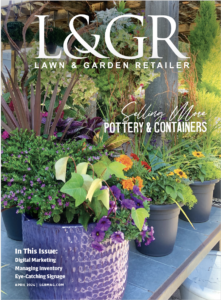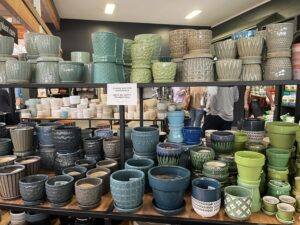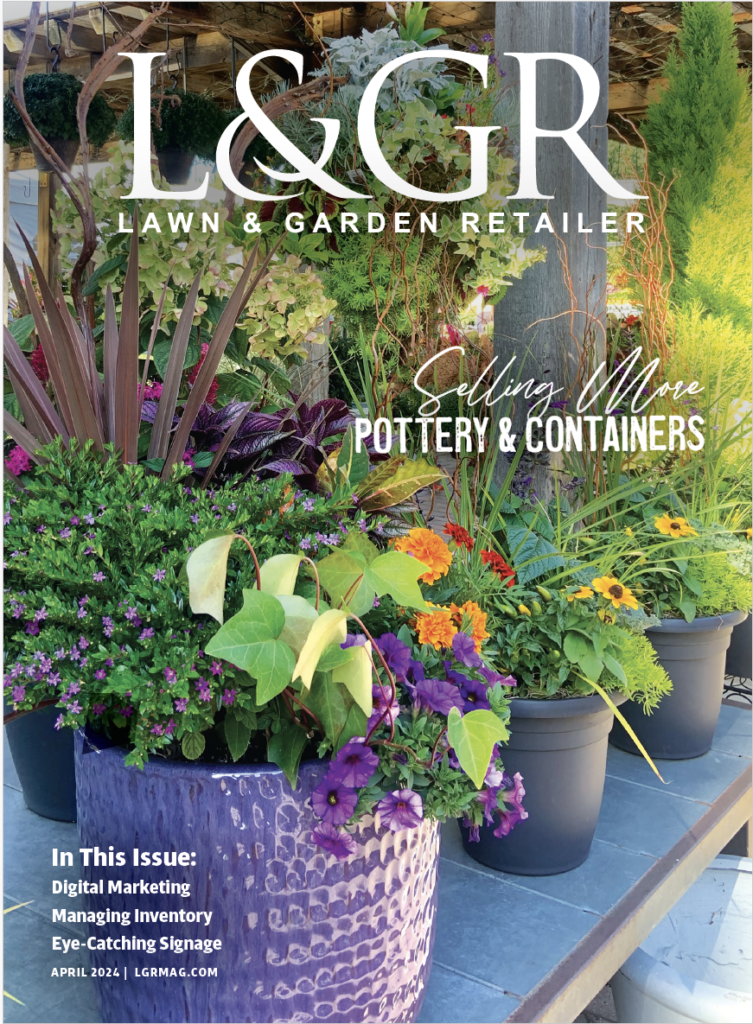Maximizing Trade Show Success
If you’ve ever planned a vacation, you’re likely to understand that it takes time to really identify what you want to accomplish during your getaway. From what hotel to stay at, to how you plan to get there, to the details of your daily itineraries, most vacations need time to plan and prepare for in order to get the most return on your investment.
And when you consider “investment” as both time and money, garden centers and landscape businesses like yourself know better than anyone how important this is.
Planning for a trade show is similar to a vacation; it takes preparation and planning to really get everything out of it you both want and need to.
From meeting with established vendors, to discovering new exhibitors, to attending educational sessions, to networking with like-minded merchants, trade shows have a lot to offer you … but it takes some time to really identify how you can maximize your trade show experiences.
To help, consider the five tips below as you prepare for your next trade show visit.
Tip #1: Research the Trade Show You Plan to Attend in Advance
There’s nothing worse than showing up for a trade show or a vacation for that matter only to realize you weren’t prepared for what’s scheduled. It would be similar to flying all the way to the Bahamas without packing a bathing suit. You wouldn’t do that, right?
To best maximize your trade show experiences, it’s vital you understand each unique show and the opportunities each show offers merchants.
For example, if you’re a fan of the TV show “The Profit!”, you would probably hate to miss the keynote from Marcus Lemonis of “The Profit!” that is taking place in August at the IGC Chicago show. Known as the “Business Turnaround King”, Lemonis will discuss his thoughts on how every business can be reinvented including yours. Wouldn’t you hate if you discovered this after he delivered his keynote and too late for you to gain from it?
The takeaway here is to plan ahead and utilize the website and other resources provided to you by each respective show you are interested in attending.
Make sure you are on their email lists, and be sure to actually open and review each email you receive. Utilize their social media pages, as well, to help stay informed on everything taking place at each respective show.
The details of each unique show are what will make your experience worthwhile but only if you take the time to prepare and plan for your unique trade show experience.
Tip #2: Schedule Time with Existing Vendors Prior to the Show
Part of the fun and let’s face it, work of any trade show is to discover new vendors and new products. You definitely want to allocate time for this (see tip #3). But in order to accurately plan for this, you must also plan for time to visit existing vendors you already source from. This will allow you to gain one-on-one time from your established vendors, as well as gain insight on any new products or services they may be offering.
Additionally, it may allow you to gain from any trade show specials that are only offered when placing orders at the show one more reason attending trade shows is so important.
Another thing you don’t want to overlook is the impact “face time” with vendors has on your business. This face-to-face interaction simply can’t be replicated through email and phone calls alone which makes attending trade shows even more important.
When factoring this into your trade show strategy, be sure to identify a specific date and time you plan to meet each respective vendor you want to see so that they can also plan a necessary time for each meeting.
Another key tip? Be sure to thoroughly review the entire trade show schedule prior to making vendor appointments so that you do not overlap any meeting during education sessions or other opportunities you won’t want to miss.
Tip #3: Plan for “Flex” Time
As much as visiting established vendors is important, it’s also vital to take time to identify new trends, new products, new vendors and new experiences. When planning your schedule at a trade show, be sure you give yourself “flex” time so you can accomplish this as well.
Flex time should be factored into each of your days, with flexibility being the key takeaway here.
You want to always keep track of scheduled vendor appointments and other trade show experiences you don’t want to miss, but allowing for flexible time in between each experience can help avoid unnecessary stress.
For example, if you pack your schedule from the time the show opens to the time the show ends with vendor appointments, how are you expected to experience everything the show has to offer you? Part of the appeal and perks that trade shows offer is the unexpected so be sure you factor this into your daily visits for each trade show you attend.
Tip #4: Have a Show Goal
Once committed to an event, identify what you want to gain from it. Is it to write orders? Discover new vendors? Network with like-minded but not competitive businesses? Participate in educational events? All of the above?
It’s essential to determine what you want to gain from each show you attend, as well as identify how you will measure your success once it’s completed.
This will help keep you on track and focused while at trade shows, allowing you to more successfully navigate and experience each trade show you attend.
Some goals such as order writing can be analyzed immediately while others may take longer to materialize. This could include applying techniques you learned while at the show to your store floors or introducing new vendors into your inventory assortment.
Your final evaluation of the show shouldn’t be identified until the show concludes and you have had time to implement some of what you gained at the show.
Ultimately, you will be able to determine a value and outcome of the trade show as well as identify if the show you attended is one you want to attend again.
Tip #5: Be in Game Mode
While planning for a trade show may be similar to planning a vacation, the key difference is that trade shows are work and vacations hopefully are not. Keeping this in mind, you need to look at trade shows as “game time.” Missed opportunities will happen if you aren’t prepared, whereas strong preparation can help you reach your goals more easily.
Get Away from the Day-to-Day
Running any business is hard work but don’t let your constant to-do list keep you from attending trade shows and getting away from your store.
It’s healthy for your business and even you to immerse yourself among like-minded merchants, industry leaders, existing vendors and new-to-you opportunities to help your store flourish.
It’s also healthy for you to step away from business, only to return feeling refreshed and ready to come back in full swing.
And for those of you who really plan ahead, you may just be able to squeeze in a little vacation following your trade show enjoying some of the amenities that many trade show cities, hotels and destinations offer you. After all, the hard work of a trade show deserves a little vacation … right?

















 Videos
Videos





